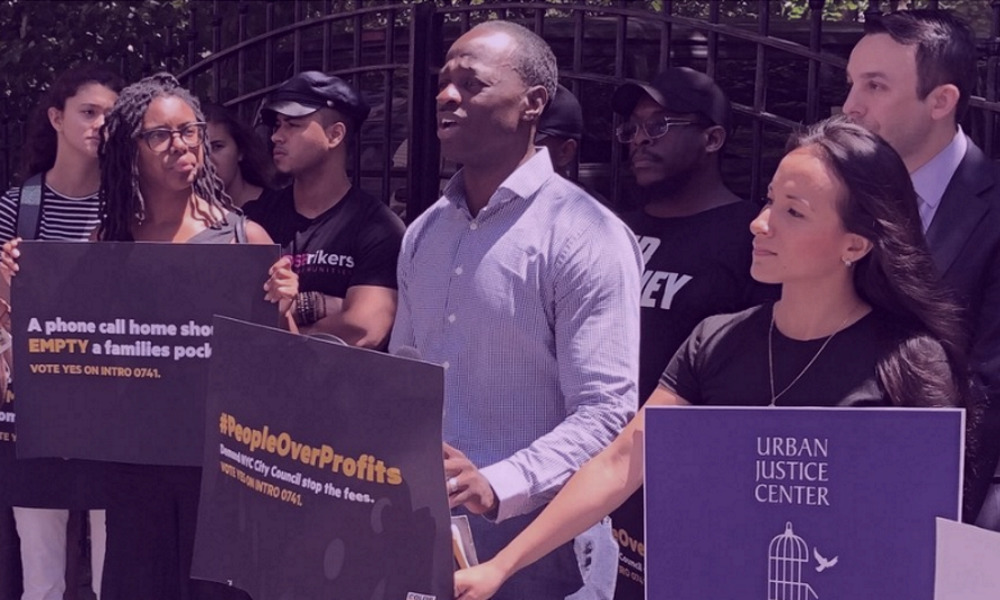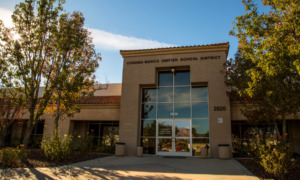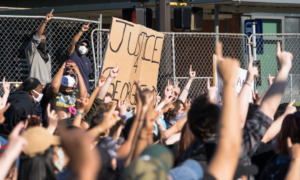When Diane Lewis’ 17-year-old son was locked up in an adult prison, she got caught in a spiral of spending funds intended for household bills on staying in touch with him by telephone.
 “You do what mothers do. You sacrifice and you move it around,” the Hartford, Conn. mom said, referring to her bill money. “Sometimes the lights are going to go off, sometimes the gas is going to go off. But I’m going to speak to my child.
“You do what mothers do. You sacrifice and you move it around,” the Hartford, Conn. mom said, referring to her bill money. “Sometimes the lights are going to go off, sometimes the gas is going to go off. But I’m going to speak to my child.
“I was spending hundreds and hundreds of dollars a month to speak to my son.”
Nervous about her teen being incarcerated with grown men, she spoke with him daily for only a few minutes, said Lewis, a community associate at Worth Rises, a nonprofit organization lobbying to get rid of for-profit prisons and private telephone companies that governments contract to charge as much as $1.67 a minute for the incarcerated to dial their relatives.
Pressured by Worth Rises and similar advocacy groups, the Federal Communication Commission last year imposed ceilings on the costs of interstate calls from convicted people in prisons and the mainly pre-trial detainees in jails. Before the FCC’s action, a handful but growing number of municipalities and states already were moving in that direction. Effective this July, Connecticut will become the first state where all calls between adult and juvenile incarcerated people and their families are free. And San Diego County, Calif. will offer an unlimited number of free calls of up to 15 minutes each for the incarcerated.
Starting Aug. 1, Massachusetts will offer the incarcerated up to 10 minutes of free calls weekly. Legislators in New York State legislators are considering a similar bill.

Worth Rises
Bianca Tylek
Back in 2019, New York City began assuming the cost of jail calls up to 21 minutes long. In California, in 2020, San Francisco announced that all calls from its county jail would be free. Currently, Los Angeles County is considering a similar measure.
Bianca Tylek, founder and executive director of New York City-based Worth Rises, is among criminal justice reform advocates who support those changes but believe they don’t go far enough.
“Back in 2018, calls … would run as high as $25 for a 15-minute phone call,” Tylek said. “Thankfully, because of the advocacy of so many of our partners over these years, we’ve seen that come down pretty dramatically.
“Today, the most expensive call is about $1 per minute … $1 a minute is nothing to be proud of.”
Watchdog: Too few states bar high phone fees
In some places, high call costs still are untenable for the impoverished, according to data compiled by the Prison Policy Initiative, a think tank based in Easthampton, Mass. For instance, 13 states have at least one jail that charges at least $12 for an in-state call; 15 states have an average rate for jail calls of $6 for 15 minutes in state. Only seven states do not have inordinately high call costs or widely varying costs among correctional facilities run by either the county, state or federal government in those seven regions, according to that think tank.
Private companies still are grossing lots of earnings in the nation’s prison and jail systems, adult and juvenile, Tylek said. Among the largest is Securus Technologies, which last year boasted about offering 40 million free calls to the incarcerated since the pandemic began in March 2020. That amounted to 1.8 calls a month for each person, according to Tylek and other advocates’ math.

Courtesy of Wanda Bertram
Wanda Bertram
Those calls, they added, are even more important as COVID-19 prompted corrections officials in many places to suspend in-person visits. Even facilities that instituted rigorous measures against the coronavirus are likely to extend those suspensions, said Wanda Bertram, the Prison Policy Initiative’s communications strategist. Prison telephone contractors, Bertram added, now are looking at comparatively costly video calls and giving out tablets, which are free but require users to pay for any apps they download.
“Unfortunately, the pandemic has created an opportunity to move in the wrong direction,” Bertram said. “You see a continued suspension of in-person visits even now, when prisons and jails are enacting other policies that make it seem as if the pandemic is over.”
Connecticut activist and mother Lewis said she was lucky, all those years ago, that she could cobble together cash to dial her son. She lauds her state for moving to make calls free, starting this summer.
“I’m thinking about a grandmother who’s on a fixed income or an unemployed single mom.” said Lewis, 56, whose son, now 35, repairs garages throughout Connecticut, since his release from prison last year.
“We know,” she added, “that the reason his reentry into society was a successful one was because he was connected to his family.”
Award-winning journalist Melanie Eversley has covered civil rights, criminal and social justice and other topics, including from USA Today’s New York City bureau and Virginia headquarters, and in the Washington, D.C. bureaus of the Atlanta Journal-Constitution and Detroit Free Press.
































